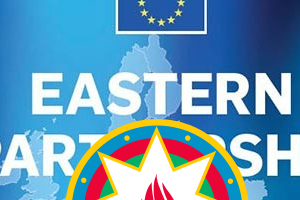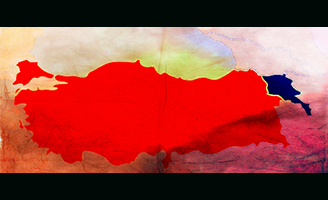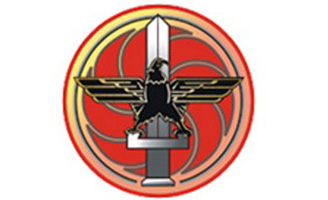Azerbaijan and the EU
By Natalia Konarzewska (06/24/2015 issue of the CACI Analyst)
Azerbaijan’s president Ilham Aliyev made a last-minute decision not to attend the European Union’s May 21–22 Eastern Partnership (EaP) summit in Riga, citing the need to focus on the upcoming European Olympic Games, which were about to start in Baku. However, high-ranking officials quoted in the media asserted that president Aliyev did not attend the summit due to Western criticism towards Azerbaijan. Baku also expressed dissatisfaction with the summit’s results as Azerbaijan hoped to receive more vocal Western support for the resolution of the Nagorno-Karabakh conflict. Instead, attention was focused on human rights violations in Azerbaijan. Azerbaijan’s relationship with the EU is becoming increasingly strained and displays growing disappointment from both sides.

Turkey-Armenia Relations after Turkey’s Elections
By Armen Grigoryan (05/27/2015 issue of the CACI Analyst)
The outcome of Turkey’s recent parliamentary elections may partly reduce tensions in relations with Armenia, stopping the mounting hostile rhetoric of recent months. A normalization of bilateral relations should not be expected at this stage, but the trend of increasing cooperation in the humanitarian area, and in culture, tourism, and the media in recent years will likely continue. At the same time, some policies may need to be reassessed in consideration of regional security risks, including the growing level of militarization in the South Caucasus, increased tensions on the line of contact in Nagorno-Karabakh in the absence of progress in the negotiation process, as well as Russia’s capacity for manipulating the regional conflicts.

CACI Analyst, March 18, 2015
CACI Analyst, March 18, 2015 (.pdf)
Contents
Analytical Articles
TURKMENISTAN POISED FOR TAPI BREAKTHROUGH, by Micha'el Tanchum
NEMTSOV'S ASSASINATION AND THE CHECHEN TRACE, by Emil Souleimanov
RUSSIA TO STRIP ABKHAZIA AND SOUTH OSSETIA OF THEIR LIMITED SOVEREIGNTY, by Valeriy Dzutsev
ARMENIA'S RULING PARTY CONSOLIDATES POWER, by Armen Grigoryan
Field Reports
KYRGYZ CRIME BOSS MURDERED IN MINSK, by Arslan Sabyrbekov
GEORGIA FACES ECONOMIC CRISIS, by Eka Janashia
TAJIKISTAN'S ELECTIONS EXPEL OPPOSITION FROM PARLIAMENT, by Oleg Salimov
ARMENIA TO PARTICIPATE IN BAKU 2015 EUROPEAN GAMES, by Mina Muradova
Armenia’s Ruling Party Consolidates Power
By Armen Grigoryan (03/18/2015 issue of the CACI Analyst)
Armenia’s parliamentary opposition suffered a serious blow as the government managed to disrupt the cooperation that the Prosperous Armenia Party (PAP) and the Armenian National Congress (ANC) had built since 2011. Further atomization of the opposition and consolidation of the regime has become more likely. The regime can also strengthen its position in the context of a protracted dispute with Turkey concerning the Armenian genocide in the Ottoman Empire and its consequences. As a concomitant result, no compromise leading to a breakthrough in negotiations on the Nagorno-Karabakh issue should be expected.

Armenia to Participate in Baku 2015 European Games
By Mina Muradova (03/18/2015 issue of the CACI Analyst)
The mediators in peace talks over a settlement of the Nagorno-Karabakh conflict have welcomed Armenia’s decision to participate in the first-ever European Games that will be hosted by Azerbaijan this summer. At the same time, shootings along the frontline and the military rhetoric of official Baku and Yerevan continue.
Starting on June 12, Baku will host a major multi-sport event for 17 days, which will bring together over 6,000 athletes from 50 countries of the European continent.
On March 11, the Executive Committee of Armenia’s National Olympic Committee (NOCA) officially announced its final decision. The country expects to compete in sambo, shooting, judo, wrestling, boxing, and taekwondo.
Fierce tensions have existed between Azerbaijan and Armenia ever since the two countries received independence in 1991 over ownership of Nagorno-Karabakh, a landlocked region in the South Caucasus, located within Azerbaijan’s internationally recognized borders. Although the two sides signed a cease-fire agreement in 1994, the latest clashes along the frontline and military rhetoric are intensifying on both sides. Monitors say the 2014 death toll of about 60 people was the worst for 20 years, while the nature of the confrontation on the front line is becoming more dangerous due to attacks not only by snipers, but also by helicopters and artillery.
Armenia’s and Azerbaijan’s Presidents Serzh Sargsyan and Ilham Aliyev met on three occasions last fall made no progress toward a lasting peace settlement. According to OSCE Chairman in office, Serbian FM Ivica Dačić “… acts of violence increased after these meetings, and the political process weakened.” While politicians are looking for diplomatic solutions, the sports community looks to make its own contribution in establishing trust between sides.
Armenia will participate in in the inaugural European Games next year, claimed Patrick Hickey, President of the European Olympic Committees (EOC) last November, when Armenia’s Olympic Committee took part in 43rd EOC General Assembly in Baku. It has taken much mediation to find a solution to allow Armenian participation in the Baku 2015 European Games.
Following a visit of Hickey with the International Olympic Committee President Thomas Bach to Armenia last year, a solution have been found and the problems between the two countries will not lead to a boycott. The recent confirmation is a major coup for the EOC and the organizers less than three months before the European Games.
“We are very pleased to confirm our participation in the first European Games,” NOCA President Gagik Tsarukyan said in a statement. “We know that Armenian athletes will have the best possible facilities and support available to them at Baku 2015, helping them reach their peak performance this summer. I can say now that this was the best decision for the future of sport in our country … My Executive Board took this decision based on sporting reasons alone; it is important to keep sport independent from politics, he noted.
The U.S. Co-chair of the OSCE Minsk Group James Warlick posted on Twitter: “Good news that Armenian athletes will compete in the European games in Baku. Hope Azerbaijan will welcome the decision.” The decision was also welcomed by France.
However, the decision of Armenia’s NOC has been hotly contested between the Olympic Committee chiefs and some leaders of the country’s sports federations, who have opposed the idea of participating in the games to be held in Azerbaijan from June 12-28. “There’s no need for our athletes to go to Baku,” Levon Julfalakyan, the head coach of Armenia’s Greek-Roman wrestling team said. “They will never get a fair deal for their performances in Azerbaijan.” His statement was backed by Armenia’s gymnastics head Albert Azaryan. “Regardless of our athletes’ performance they will never be given a chance to win in Baku by any means,” he said. “Armenia has a difficult relationship with Azerbaijan and the trip to Baku could become a pretty risky affair.”
Meanwhile, the organizers of the European Games have already given security guarantees for the members of Armenia’s delegation during the event. “We invite all 50 countries to take part in first European Games. We guarantee that all necessary conditions will be created. Azerbaijan will ensure security at a high level for all participants of Baku 2015,” stated Azad Rahimov, Azerbaijan’s Minister of Youth and Sport.
Azerbaijan’s military authorities also intend to take additional precautions during the events. “Azerbaijan will give a harsh response to any provocation of Armenia before and during the first European games, Vagif Dergyahly, a spokesperson of the Azerbaijani Defense Ministry told Trend on Thursday. He did not rule out that Armenia, on the eve of Baku 2015, will try to “aggravate the situation on the frontline.”





